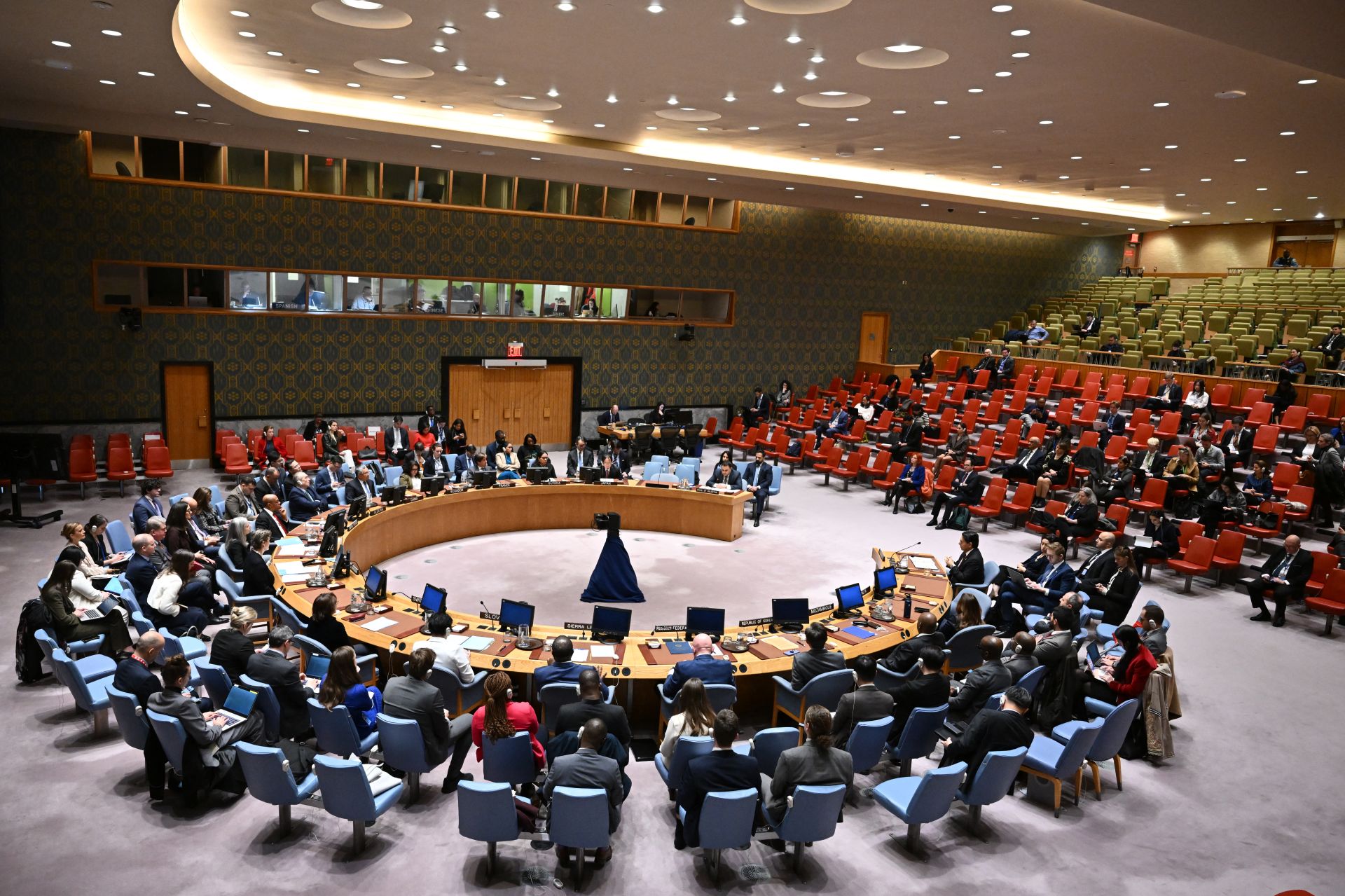- Home
- Middle East
- Israeli Strikes on Syria’s Palmyra Killed 92 Pro-Iran Fighters

The United Nations Security Council meets to discuss the situation in the Middle East on November 20, 2024, at UN headquarters in New York City. ©ANGELA WEISS/AFP
A Syria war monitor said on Friday that Israeli strikes on the city of Palmyra this week killed 92 pro-Iran fighters, after a United Nations representative said they were likely the deadliest to date.
The Syrian Observatory for Human Rights said Wednesday's attack targeted three sites in Palmyra, with one hitting a meeting of pro-Iranian groups that also involved commanders from Iraq's Al-Nujaba group and Lebanon's Hezbollah.
Wednesday's death toll was "the highest due to Israeli raids on pro-Iran groups in Syria" since civil war broke out in 2011, Syrian Observatory for Human Rights chief Rami Abdel Rahman said.
The Britain-based monitor said the strikes targeted three sites in Palmyra -- a modern city adjacent to renowned Greco-Roman ruins.
One hit a meeting of pro-Iranian groups involving leaders from Iraq's Al-Nujaba group and Hezbollah.
The death toll has risen to "82 pro-Iran fighters", including 22 foreigners "mostly from the Iraqi Al-Nujaba movement" but also including "four from Hezbollah", the Observatory said.
It then increased to 92.
It said the toll was still provisional "due to the large number of wounded".
On Wednesday, the Syria defence ministry had put the death toll at 36.
The UN deputy special envoy to Syria, Najat Rochdi, told the Security Council on Thursday that the bombardment was "likely the deadliest Israeli strike in Syria to date".
Since civil war erupted in 2011, Israel has carried out hundreds of strikes in Syria, mainly targeting the army and Iran-backed groups.
The Israeli military has intensified its strikes on targets in Syria since almost a year of hostilities with Iran-backed Hezbollah in neighbouring Lebanon escalated into full-scale war in late September.
Israel rarely comments on individual strikes in Syria but has repeatedly said it will not allow Iran to expand its presence in the country.
Palmyra, a UNESCO World Heritage Site, was taken over and pillaged by Islamic State group jihadists at the height of the Syrian civil war.
The director general of antiquities and museums in Syria, Nazir Awad, told AFP the city's temples "did not suffer any direct damage" during the latest strikes.
"We need to conduct a survey on the ground to confirm these observations," he added.
With AFP
Read more



Comments